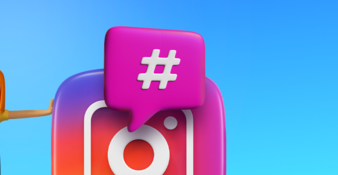Freelance/Remote work and mental health: should you follow the trend?

Freelance and remote work among all kinds of marketers is getting more and more widespread. And, of course, not only marketers. Freelance, remote, self-employed jobs are on the rise as never before. For example, in the UK, self-employed population contributed around £271 billion to the government’s coffers in 2017, of which around £125–140 billion came from freelancers. Many predict that by 2020 half of the UK workforce will be freelancing. In the U.S., a Gallup poll found that 43% of employed Americans work remotely at least some of the time. Nearly one-third of them works remotely four days a week or more.
Let’s start from the beginning. What do we know about the effect of freelance/remote work?
Productivity-related factors
A study from 2015 published in Psychological Science in the Public Interest found that people that work remotely express more job satisfaction and a greater sense of commitment to their companies. Other surveys showed that people are more productive when they work remotely. According to the study from Stanford University, people are 13% more productive and 9% more engaged. Seems that every company's desire to hire organized, autonomous, and self-motivated people becomes fulfilled if they decide on remote workers.
Stress-related factors
While flexibility of working hours was the main benefit stated by people who work remotely (62% as reported by Epson EcoTank research), many (47%) also reported stress as a factor that pushed them out of the office. Stress that working in the office brings upon is an important negative factor for many employees. And in a different survey from 2014, as much as 82% reported lower stress levels when they worked from home.
So, is it time to go remote?
As usual, a couple of researchers decided to test this. In fact, that’s the study the results of which were mentioned earlier: the Stanford two-year experiment that showed all productivity and engagement benefits of people working from home. You can watch the Ted talk about it below:
What was the catch though? After two years of study, more than half the volunteer group changed their minds about working from home. Not all of them returned to a full-time office job, but at least partly they wanted to spend time back in the office. Why? They felt too isolated.
The downside of freelance/remote work
When going freelance, it’s necessary to understand that isolation and loneliness that come with it are very real. Research from Cornell University found that remote workers are at greater risk for feeling isolated not only professionally, but also personally, compared to their in-office colleagues. In the Epson’s study, a striking 48% admitted that freelance and remote work is ‘lonely’, and 46% said it was ‘isolating’.
How does this happen? First, freelance work is often associated with travelling. Don’t get me wrong, travelling is one of the best things in the universe. However, leaving your home, family, and friends, and starting to work alone at the same time can be detrimental to one’s mental health. Here’s how the founder of Doist, a long-term freelancer, describes his experience:
“Loneliness isn’t something that many traveling remote workers write about. You won’t see it in their Instagram stories, but I guarantee you they’ve felt it. When you travel for extended periods of time, you lose your social circle, your sense of belonging, and the everyday routines that keep you grounded and healthy.”
Loneliness might not seem like “a real problem”, especially when compared to stress, which has been linked to all kinds of health problems, and productivity, which is usually the goal of both employers and employees. However, loneliness is an important risk factor - its effect on health is comparable to that of smoking and obesity. Loneliness, lack of social contact and social support often lead to depression.
Another serious disadvantage of remote work is the lack of borders between working and non-working life. Sometimes it's not a bad thing, but is also has some very counterintuitive results. For example, remote workers take fewer breaks and sick days: they continue to work even when they’d consider themselves too ill and spend the day sleeping if they were office workers.
What’s the way out?
For freelancers:
If you’ve decided to go freelance for the benefits it provides, we salute you! However, take some precautions to minimize the risks and maximize the benefits:
- Network. I know you probably dislike networking with all your introverted heart, but do make an effort. Get out of the house and meet like-minded professionals.
- Diversify your connections. Reach out to people in the fields similar to yours, but not exactly yours. They will be the source of knowledge and professional support that you won't get otherwise.
- Join co-working spaces, freelance communities, and meetups. Even if your social circle is already large and diverse, it still might be not enough to protect you from the isolation that comes with remote work. After all, you spend most of your day working - at least some of this time should be spent alongside other people.

-
Stay safe. Make sure your data and things are safe.
For employers:
Wish to increase productivity and loyalty of your employees? Provide them with an option to work from home from time to time. A survey by the Society of Human Resource Managers showed that 89% of companies report better retention by only offering flexible work options. Employees feel more satisfied with their job before they even get a chance to work remotely. In the study, the very possibility was enough to inspire them and value their job more.
Do you have any remote work/freelance experience? I’ll be happy to hear your thoughts in the comment section!













